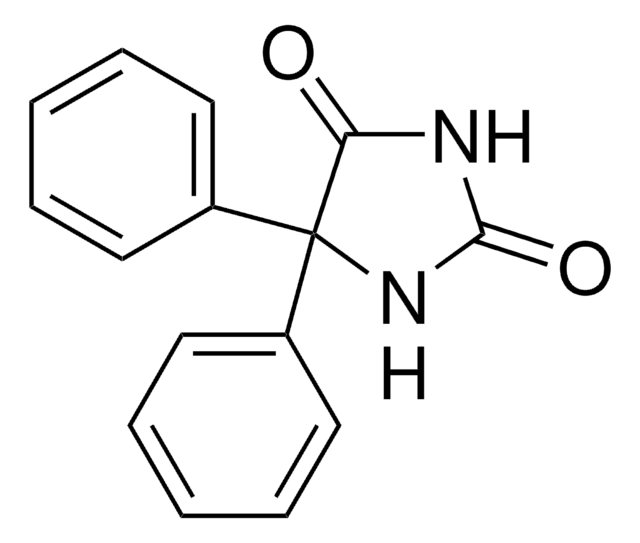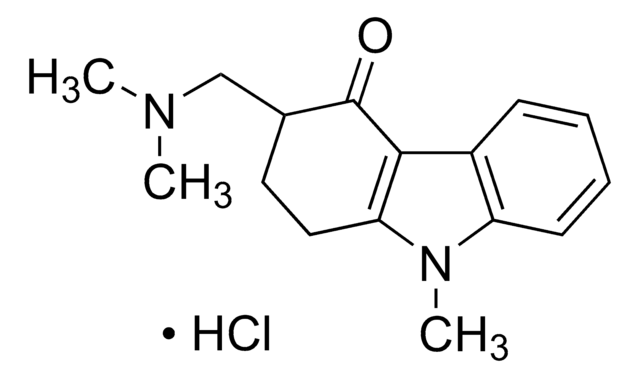1535507
USP
Phenytoin sodium
United States Pharmacopeia (USP) Reference Standard
Sinónimos:
5,5-Diphenylhydantoin sodium salt, 5,5-Diphenyl-2,4-imidazolidinedione, Phenytoin
About This Item
Productos recomendados
grado
pharmaceutical primary standard
familia API
phenytoin
fabricante / nombre comercial
USP
aplicaciones
pharmaceutical (small molecule)
Formato
neat
cadena SMILES
[Na]N1C(=O)NC(C1=O)(c2ccccc2)c3ccccc3
InChI
1S/C15H12N2O2.Na/c18-13-15(17-14(19)16-13,11-7-3-1-4-8-11)12-9-5-2-6-10-12;/h1-10H,(H2,16,17,18,19);/q;+1/p-1
Clave InChI
FJPYVLNWWICYDW-UHFFFAOYSA-M
Información sobre el gen
human ... SCN10A(6336) , SCN11A(11280) , SCN1A(6323) , SCN2A(6326) , SCN3A(6328) , SCN4A(6329) , SCN5A(6331) , SCN7A(6332) , SCN8A(6334) , SCN9A(6335)
¿Está buscando productos similares? Visita Guía de comparación de productos
Descripción general
Aplicación
Acciones bioquímicas o fisiológicas
Nota de análisis
Otras notas
Producto relacionado
Palabra de señalización
Warning
Frases de peligro
Consejos de prudencia
Clasificaciones de peligro
Acute Tox. 4 Oral - Repr. 2 - Skin Sens. 1
Código de clase de almacenamiento
11 - Combustible Solids
Clase de riesgo para el agua (WGK)
WGK 3
Punto de inflamabilidad (°F)
Not applicable
Punto de inflamabilidad (°C)
Not applicable
Elija entre una de las versiones más recientes:
Certificados de análisis (COA)
Lo sentimos, en este momento no disponemos de COAs para este producto en línea.
Si necesita más asistencia, póngase en contacto con Atención al cliente
¿Ya tiene este producto?
Encuentre la documentación para los productos que ha comprado recientemente en la Biblioteca de documentos.
Nuestro equipo de científicos tiene experiencia en todas las áreas de investigación: Ciencias de la vida, Ciencia de los materiales, Síntesis química, Cromatografía, Analítica y muchas otras.
Póngase en contacto con el Servicio técnico







